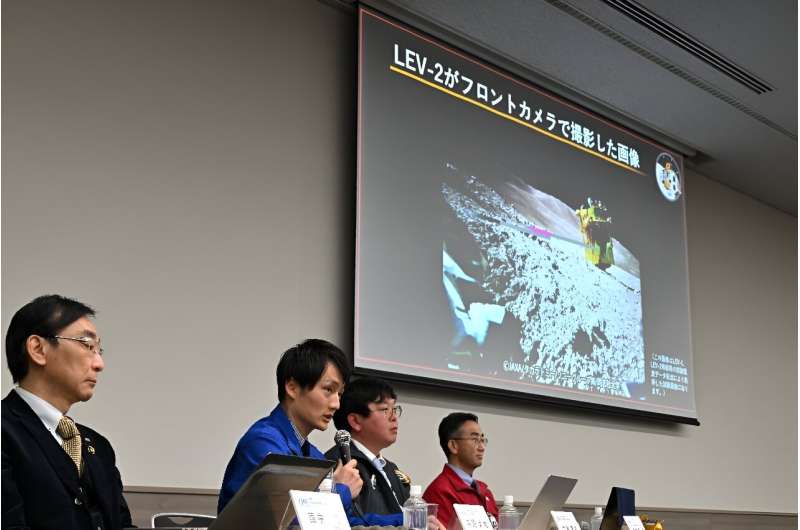
Japan’s moon lander has come back to life, the space agency said Monday, enabling the craft to proceed with its mission of investigating the lunar surface despite its rocky start.
The surprise announcement was a boost to Japan’s space program, nine days after the Smart Lander for Investigating Moon (SLIM) touched down at a wonky angle that left its solar panels facing the wrong way.
“Last evening we succeeded in establishing communication with SLIM, and resumed operations!” JAXA said on social media platform X, posting a grainy image of a lunar rock known as a “toy poodle”.
“We immediately started scientific observations with MBC, and have successfully obtained first light for 10-band observation,” it said, referring to the lander’s multiband spectroscopic camera.
Terrifying minutes
SLIM’s January 20 touchdown made Japan only the fifth nation to achieve a “soft landing” on the moon after the United States, the Soviet Union, China and India.
But on its descent, dubbed the “20 minutes of terror”, the craft suffered engine problems and ended up at a skewed angle, images released by JAXA showed.
This meant the solar panels were facing west instead of up, and it was uncertain if they would still get enough sunlight to function.
Last week JAXA said it had switched the elevator-sized SLIM off with 12 percent power remaining, hoping that the craft would wake up this week.
A JAXA spokesman told AFP on Monday that the SLIM operation resumed “presumably because power generation resumed in its solar battery as it received sunlight”.
“We will prioritize what we can do now—observing and collecting information—rather than adjusting SLIM’s position since adjusting the position could lead to a worse situation,” he said.
“The daytime (where SLIM is on the moon) will last until around the end of January and it will be at night from around February,” he said.
Pinpoint
Helping to repair its reputation after a number of recent mishaps, JAXA said last week that SLIM had landed 55 meters (yards) from its target.
This meant that the “Moon Sniper” lived up to its nickname and landed within the 100-meter landing zone, much more precise than the usual range of several kilometers (miles).
Before powering the craft off, mission control was able to download technical and image data from SLIM’s descent and of the lunar crater where it landed.
Assuming it has enough juice, SLIM can now tackle its main mission of investigating an exposed area of the moon’s mantle, the inner layer usually deep beneath its crust.
Two probes also detached successfully, JAXA said—one with a transmitter and another designed to trundle around the lunar surface beaming images to Earth.
Transformers
This shape-shifting mini-rover, slightly bigger than a tennis ball, was co-developed by the firm behind the Transformer toys.
Russia, China and other countries from South Korea to the United Arab Emirates are also trying their luck to reach the moon.
US firm Astrobotic’s Peregrine lunar lander began leaking fuel after takeoff this month, dooming its mission. It likely burned up in the Earth’s atmosphere on its return.
NASA has also postponed plans for crewed lunar missions under its Artemis program.
Two previous Japanese lunar missions—one public and one private—have failed.
In 2022, the country unsuccessfully sent a lunar probe named Omotenashi as part of the United States’ Artemis 1 mission.
In April, Japanese startup ispace tried in vain to become the first private company to land on the moon, losing communication with its craft after what it described as a “hard landing”.
© 2024 AFP
Citation:
Japan’s moon lander comes back to life (2024, January 29)
retrieved 29 January 2024
from https://phys.org/news/2024-01-japan-moon-lander-life.html
This document is subject to copyright. Apart from any fair dealing for the purpose of private study or research, no
part may be reproduced without the written permission. The content is provided for information purposes only.







